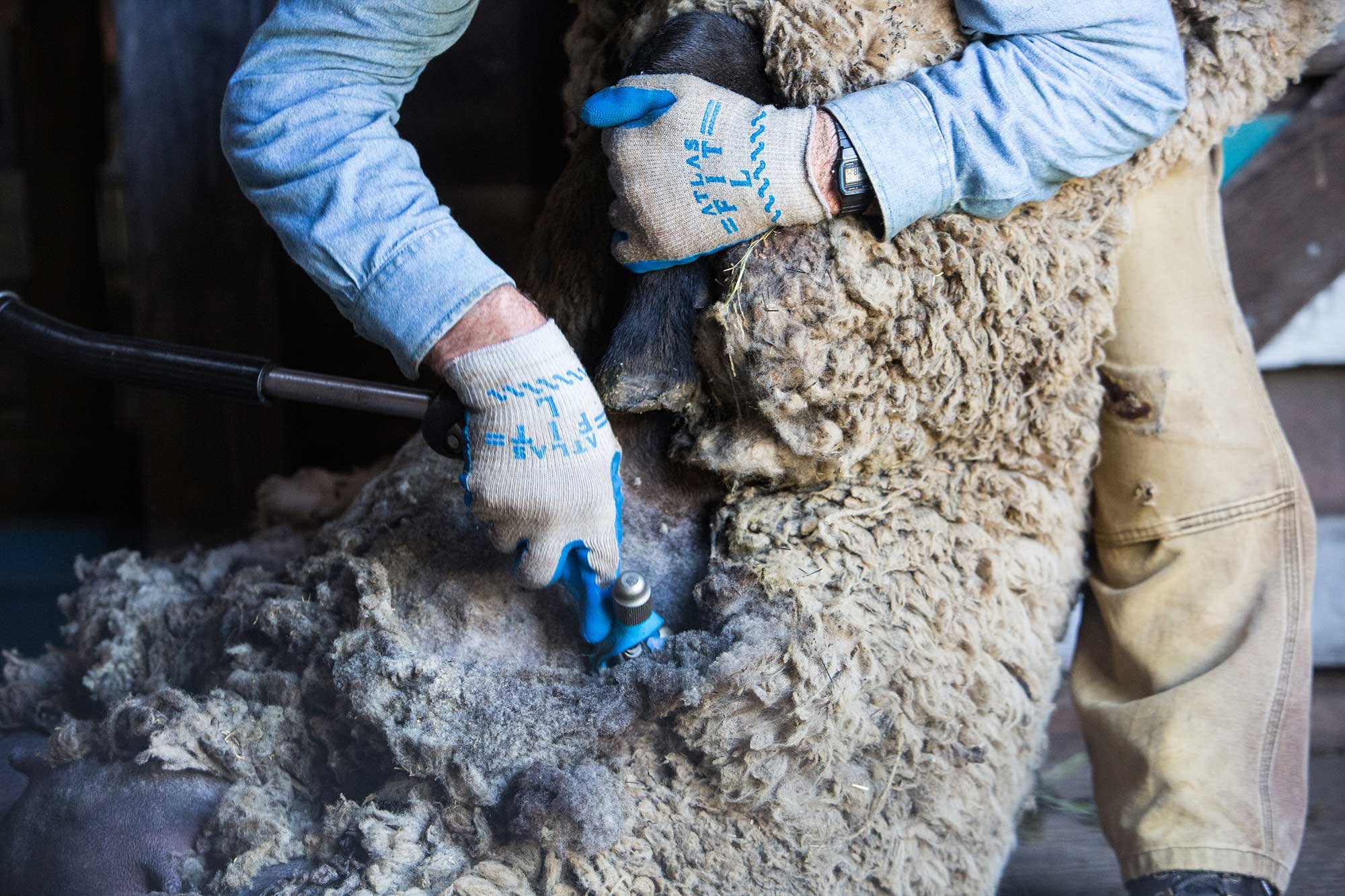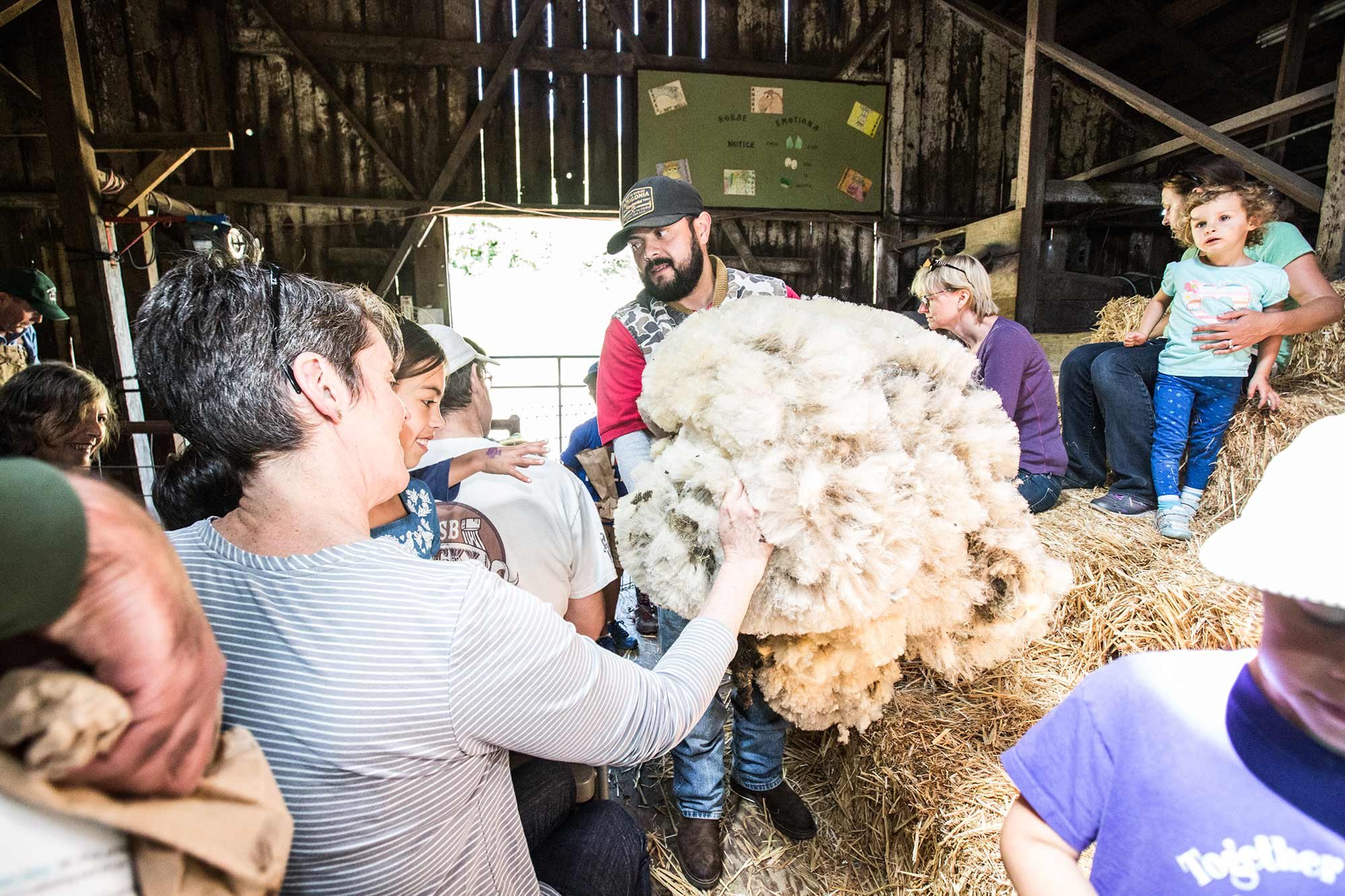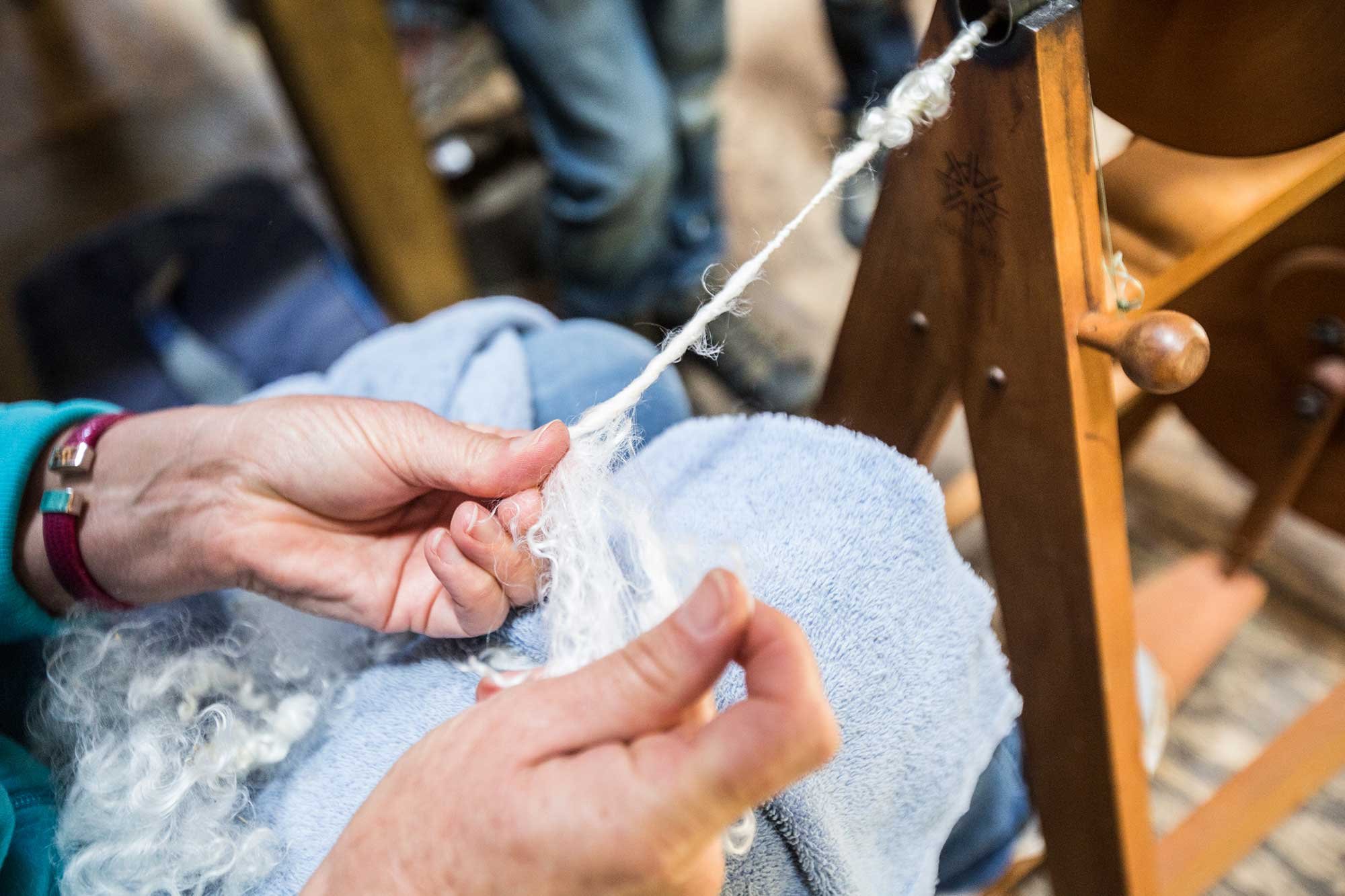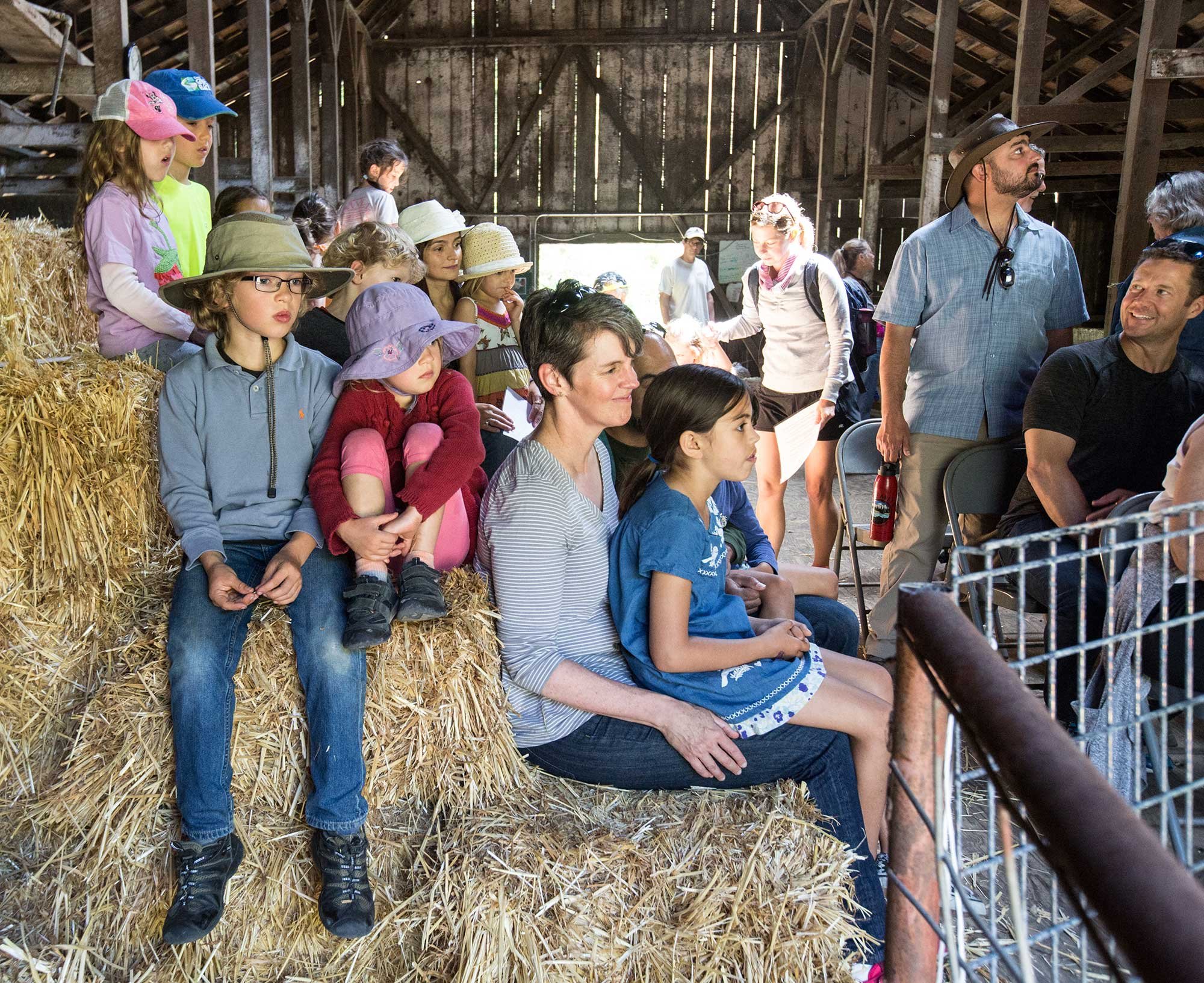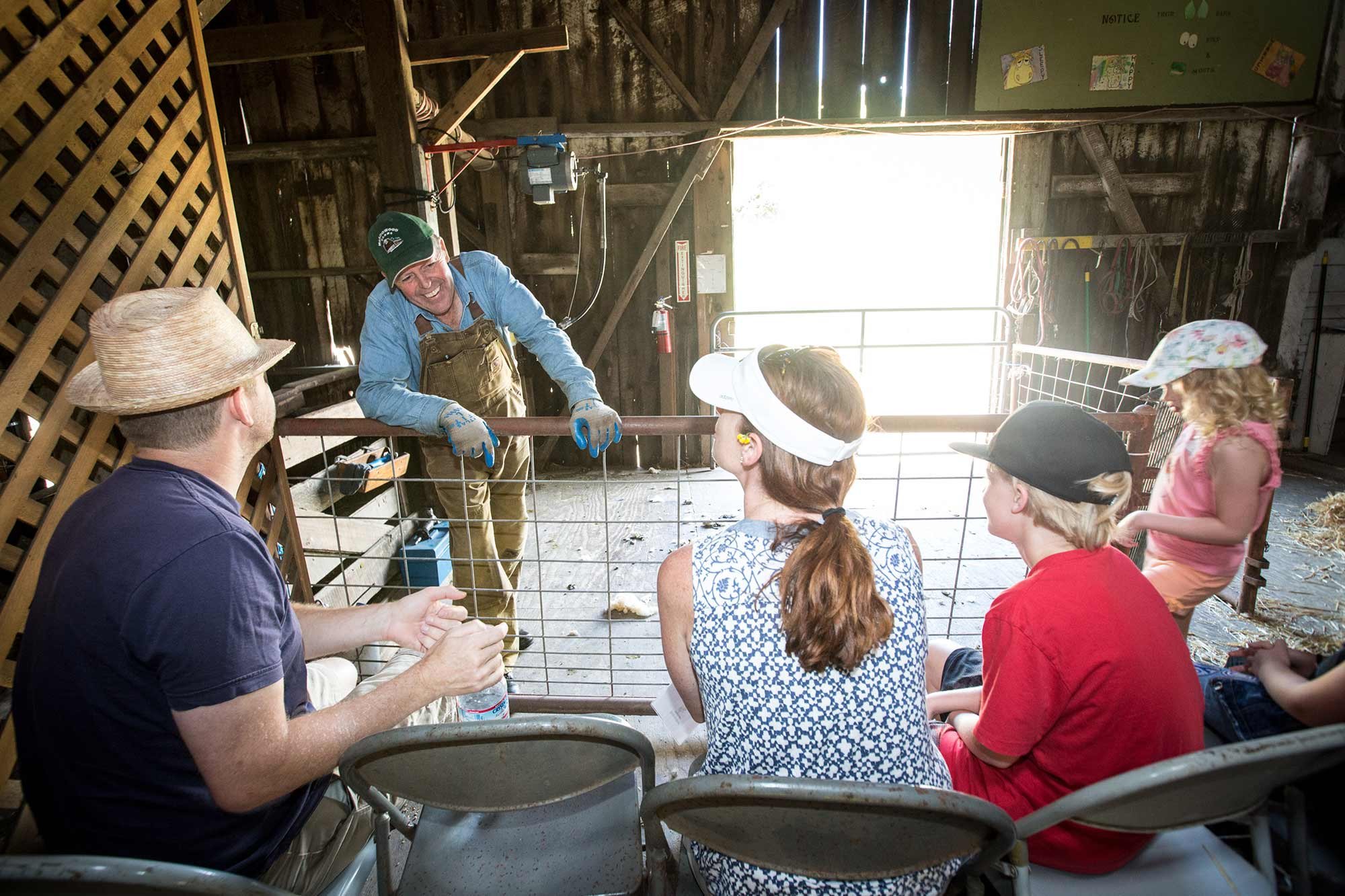“You really can’t call it fun. It’s an accomplishment. Its something that you can take pride in if you do a good job.”
— Bruce Wool
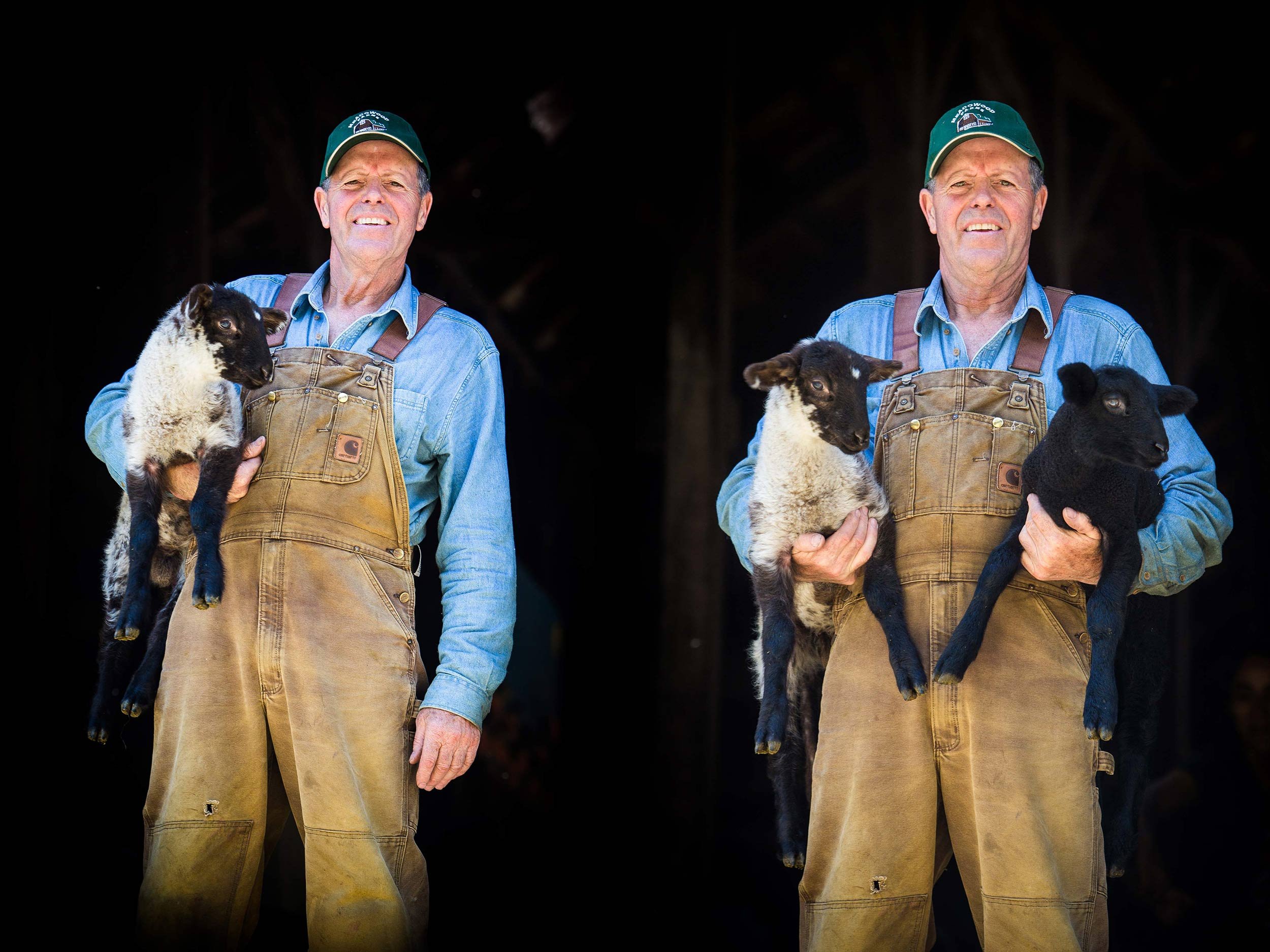
Bruce Wool, Sheepshearing Guru
Story and photos by Cat Cutillo
With a name like Bruce Wool, you might think he was destined for the sheepshearing life all along, but as it turns out, he stumbled onto the weekend profession mostly by accident.
Wool has been a highlight at the Elkus Ranch “Sheep to Shawl” event every June for more than a decade. There, he shears sheep all day in front of a crowd as his wife, Jennifer, demonstrates how to spins wool at a table nearby.
The annual event is held to educate the public about agriculture. In addition to sheep shearing, the event allows children the opportunity to feed farm animals, dye wool and explore the gardens.
Kids and adults filled the hay bale stadium seating this year, watching in awe as Wool effortlessly flipped over the sheep, which typically lay still as he sheared. There’s no question he makes it look easy.
His wife credits his wrestling when he was younger with giving him that magic touch.
“He was a wrestler in high school and college, so he can flip those sheep over and they don’t even know what happened to them,” she says. “We’re talking 200-pound animals.”
Wool grew up on a small sheep farm in the East Foothills of San Jose, near where he still lives. He began helping his father shear sheep out of necessity.
“He really did it because he didn’t like the way the sheepshearers were shearing his own sheep. It was two guys. They would tie the legs together and he didn’t like their style,” says his wife.
Coincidentally, Jennifer was just learning to spin when they first started dating.
“And so I thought here’s my source of wool,” she remembers.
Wool’s father initially taught him and his siblings the shearing basics, and Wool perfected his style by watching videos. His unintended business started to spread quickly by word of mouth in the early 1980s.
“The neighbor would look over and say, ‘Hey, who sheared your sheep?’ I’d say I did and he’d say, ‘Well, come over and do mine,’” says Wool.
It’s 30 years later, and Wool has spent every weekend shearing sheep during the season, which runs April through September. In fact, when his two daughters were younger, he brought the whole family along. His wife and daughters helping to herd the sheep and hold the shearing cord.
He’s done this in addition to working his full-time weekday profession as a heavy equipment operator for the Santa Clara County Parks Department.
He says shearing sheep is not for the faint of hearts.
“You really can’t call it fun. It’s an accomplishment. Its something that you can take pride in if you do a good job. And you’re trying to perfect it more and more every time. But to say its fun wouldn’t be the right word,” says Wool.
And Jennifer says it’s also not for the money.
“No sheepshearer is going to make any money at what they’re doing. It’s ridiculous the amount of money he charges for one sheep. If you take a little poodle to get washed and groomed, you’re going to pay $65. He charges $10 per sheep,” she says.
The real reason Wool does it? He’s still just trying to help out a neighbor—albeit his neighborhood has gotten a lot bigger.
Wool estimates he shears between 400 to 500 sheep per season, traveling from Carmel to Half Moon Bay. Most of the work is concentrated in Watsonville. He says he can shear some sheep as fast as three minutes while others take him half an hour. His record is shearing up to 40 sheep in one day.
And he has high standards. He quotes former world champion sheepshearer Charlie Swain who said, “Maybe after 10,000 sheep you can call yourself a sheepshearer.”
Wool has long surpassed that mark. He’d like to start slowing down, but there’s one persistent problem: He has nobody to whom he can refer his customers. Jennifer says that glaring reality means it might be difficult to retire.
“We feel sorry for the people and the animals because there’s nobody else around they can call,” she says.
And so the two still travel together every weekend—he shears the sheep and she holds the cord and assists him. His daughters have since grown, both recently graduating from college, each earning degrees in Agriculture.
Wool says he also has a passion for restoring old cars, but not a lot of time to do it.
“I would rather we stay home and he got to work on some of his other projects, his cars,” says Jennifer.
But the two have made such good friends with their customers throughout the years that it’s unlikely they’ll be taking weekends off anytime soon. The Wools say shearing sheep has an undeniable silver lining.
“You do meet some really nice people and you get to go to these little hidden treasures in the Bay Area—you would never get to go down that road or up that road or in that gate,” Jennifer says. “So it’s always a fun adventure.”
Against the Tide: Not for the Sheepish





